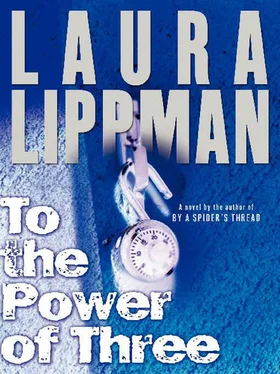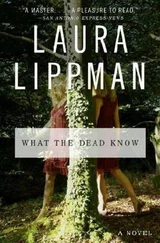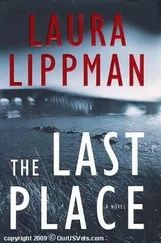She then produced a photograph from college, and Josie could almost see that her father had been attractive once, if not her idea of drop-dead gorgeous.
“He played rugby,” her mother said dreamily. “Senior year, we found an apartment off campus and furnished it with items people put out for bulk trash-tables and chairs that looked perfectly good with just a coat of paint. I made deep-dish pizza from scratch, and we had our first dinner parties, if you want to call them that. Our curtains were made from Indian tablecloths, and we served Bulgarian wine that cost two dollars a bottle.”
It was so much more than Josie wanted to know, yet also less. She wanted to be assured that her romantic horizons were as open as anyone’s, but her mother’s anecdote seemed to suggest that the only 100 percent American boys who might like her would be in pursuit of some exotic fantasy figure they had seen in a magazine. And the Indian boys, the Shamits of the world, would like her either in spite of the fact that she had an Anglo mother or because of it. She couldn’t win.
“I’m going to go out for cheerleading,” she announced after Perri brought up the subject of boyfriends. “Freshmen can try out for junior varsity at midyear.”
“Cheerleader? We’re not cheerleaders,” Perri said.
“I could make it,” Josie said, aware that her use of the first-person singular was cruelly accurate. She could make it, while Perri, with her gawky height and complete ineptness at all sports, would be hopeless. “I’m good at that kind of gymnastics-cart-wheels and round-offs. And I’m light, so I could do the things they need the smaller girls for.”
“You’d be great,” Kat agreed. “Do you think our parents would let us make a little fire here, grill hot dogs and roast marshmallows?”
“We can ask,” Perri said, “but they’d probably insist on supervising.”
It did not have to be said that no activity, no matter how desirable, was worth bringing outsiders to their circle. Even if they did not consider themselves the Ka-pe-jos anymore, even if they visited the circle only once a month or so, the place was still sacred.
When Kat’s father moved out, she refused to talk about it, even to Perri and Josie, and she stopped eating. By the end of their first semester as freshmen, she was almost too thin-and too beautiful, if such a thing were possible. Kat’s fat had been like Nana’s suit, hiding something gorgeous and true, and Josie was almost worried for her friend as she observed the commotion she created in the high school. Kat, however, seemed oblivious, wearing her old clothes, ill-fitting and baggy as they were, and ignoring the boys who buzzed around her. And it turned out that cool kids didn’t have boyfriends and girlfriends anyway. Everything was about hooking up, hitting this or that, friends with benefits. Given that choice, Kat preferred safe, platonic relationships with boys they had always known, such as Seth and Chip.
Her only concession to her new body was an increasing physical ease. She began running and going to the gym. She asked Josie to show her how to do some of the simpler gymnastic tricks, and although they never said it was a secret from Perri, it somehow became one. Yet when they both made the JV squad freshman year, Perri congratulated them wholeheartedly, and no one seemed more impressed when Josie scrambled to the top of the pyramid, her tiny stature finally an asset. Similarly, when Perri landed the role of Joan of Arc in The Lark, a remarkable honor for a freshman, Josie and Kat attended every performance and sent her roses at the final curtain call. And in the school talent show, they appeared together, doing their own riff on the updated version of “Lady Marmalade,” although they were not allowed to dress quite so provocatively.
They had trumped the system, built a friendship that transcended the confines of the school’s cliques. Yes, they were cheerleaders, but they didn’t take it seriously, and Perri may have been a drama geek, but she wasn’t a geeky one. They ate lunch together and continued to see each other on weekends. It began to seem their friendship could survive anything.
Then Peter Lasko, home from first year of college and back in his lifeguard chair, had fallen in love with Kat. Perri had always said she wasn’t jealous in the slightest, and she did have a sort-of boyfriend of her own that summer, the boy who was playing Beau to her Mame in the summer production. And when Peter dropped Kat, brutally and swiftly, their friendship continued as if it had never been interrupted, as if Kat hadn’t spent most of the summer with Peter. There were no recriminations, no envy. If anything, Perri seemed to forget that she and Josie were the ones who had once hung around the community theater’s rear entrance waiting for Peter to emerge. She told Kat he wasn’t anyone special, that Kat was better off without him. These were the right things to say, of course, and Perri said them with uncharacteristic tenderness.
But if Josie were pressed to find the precise moment when things began to fall apart, she would go back to that summer when Perri was Mame, when Kat was newly thin, when Josie was learning to fly to the top of the pyramid-and Peter Lasko had taken Kat from them, however briefly. Although they never acknowledged it out loud, it proved that something, someone, could come between them. Separated once, they were all the more vulnerable to being separated again.
PART FOUR. Last Year’s Funeral
Monday
18
“What do you want?”Chloe said by way of greeting when Dale made the long trip up from the city Monday morning, marveling all the while at the heavy traffic in the other direction. The commute hadn’t been part of his life for four years, and memory was imperfect, always. Still, the congestion had to be exponentially worse than it had been even a year ago. Why did people live like this? Oh, because his father had enabled them to-his father and the builders and the state officials, who delivered the wide, smooth roads, which persuaded people that the trip to the city would be a snap. After all, it seemed an easy enough drive on a Sunday afternoon, when optimistic families made the journey to tour the open houses. On a Sunday you could make it downtown in thirty minutes. But come the first weekday after all the paperwork was signed, it would take almost an hour.
“The funeral director thought it would be nice to have a photograph of Kat at the service. He’ll have it enlarged, but it requires something more formal than I have.” Dale had many snapshots of Kat, in his condo and the office, but they were not only too casual but also too old, the most recent taken during her sophomore year. How had he gone two years without acquiring a new photograph of his daughter?
“Do you want the painting?”
“God, no.” After all these years, he still couldn’t tell whether Chloe was ironic or obtuse. “She was ten when that was painted.”
“Eleven,” Chloe contradicted, then waited, presumably for him to acknowledge that she was correct. Chloe loved to catch Dale in errors, no matter how small, and insisted on verbal affirmation that she was right and he was wrong. Today, however, he stayed silent. “Okay, wait here, while I go look for something.”
Wait here? Wait here? It was as if he were a repairman or some shifty deliveryperson, denied permission to venture farther than the foyer. This was his house, no matter what the deed said, no matter what the lawyers had decided when they were carving up Dale and Chloe’s property so gleefully. The old stone house, the last original structure within the boundaries of Glendale, had been his father’s wedding gift to the couple, and Chloe had complained about it endlessly. But came the day when this house was all she wanted-the house and the eight acres behind it, which were virtually worthless as long as the Snyders and the Muhlys refused to sell their land. She had claimed that she wanted the house for Kat’s sake, but Dale never doubted that Chloe’s real purpose was to deny him something he loved.
Читать дальше












